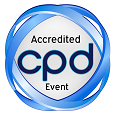
Helmut Wedekind
Bavarian States Research Center for Agriculture, Germany
Title: Animal Welfare in Aquaculture
Biography
Biography: Helmut Wedekind
Abstract
Animal welfare is an actual and quite relevant topic in aquaculture. Facing serious concerns by consumers and critical groups, the industry is obliged to evaluate their practice in the varying farming systems. So far, the monitoring and safe guarding of fish welfare has received considerable attention by researchers in recent years. During aquaculture production several environmental conditions (e. g. water quality, illumination) and management procedures (e. g. feeding, stocking, handling) can be stressful for fish. Moreover, the social structure in holding facilities or other environmental stressors can lead to a depression in performance and can be detrimental to health. In this context it has to be pointed out that satisfying the physiological and behavioral needs of the organisms cultured, is in consistence with the producers interest. Only if the husbandry conditions are close to the optimum, maximum growth and health can be assured, which consequently result in best productivity. Actual research in fishes is focused the evaluation and measurement of parameters for the welfare status. Besides animal behavior and performance, measures of health restrictions and physiological stress reactions are indicative for the welfare status of farmed animals. Some specific indicators, such as health related parameters, are precisely indicative for a stressor (e. g. gas bubble disease). Others (e. g. thin or skin lesions) can have different causes or can generally indicate suboptimal husbandry conditions. Behavioral indicators are even less specified for aquaculture species. To distinguish stress induced behavioral and abnormalities, further research is required e.g. for the definition of normal behavior under culture conditions. For this, the development of assessment methods with a high level of practical suitability for farms, as well as monitoring tools for fish welfare, is a current challenge for researchers

